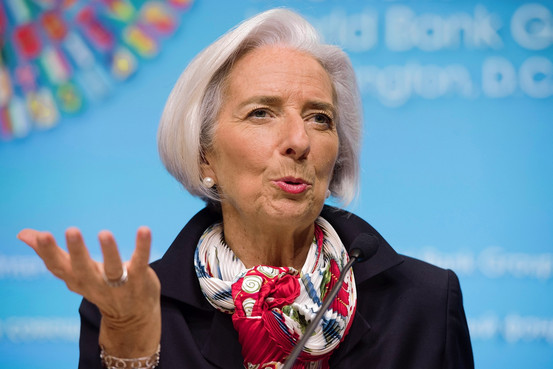List Grows of Cancelled Graduation Speakers
< < Go Back
“What we are beginning to see is a heckler’s veto.”.
The head of the International Monetary Fund on Monday joined an elite group—those whose plans to give commencement addresses this graduation season were derailed by student or faculty protests.
Christine Lagarde, managing director of the IMF, was scheduled to speak this coming Sunday at Smith College, but she withdrew her name after nearly 500 people signed a petition objecting to the policies of the IMF. Similar outcries foiled speaking engagements by former National Security Adviser Condoleezza Rice at Rutgers University and human-rights activist Ayaan Hirsi Ali at Brandeis University, among several others.
“I call it disinvitation season,” said Greg Lukianoff, president of the Foundation for Individual Rights in Education, a free-speech advocacy group. “Not everyone gets disinvited, but there is such consistent effort to get rid of people.”
Mr. Lukianoff said the trend is clearly growing. According to a tally by his group, between 1987 and 2008, there were 48 protests of planned speeches, not all for graduations, that led to 21 incidents of an invited guest not speaking. Since 2009 there have been 95 protests, resulting in 39 cancellations, according to Mr. Lukianoff’s group.
Earlier this month at Rutgers, students and faculty protested Ms. Rice’s involvement in the Iraq war, prompting her to pull out of her scheduled address at the New Jersey school. In April, Brandeis withdrew an honorary degree for Ms. Hirsi Ali, a former Dutch lawmaker who has spoken out forcefully against Islam. At Haverford College, the commencement selection of Robert J. Birgeneau, a former university administrator at Berkeley, also has drawn fire.
“There are serious implications for what is going on here; universities are becoming havens of the closed minded,” said Anne Neal, president of the American Council of Trustees and Alumni, which says it promotes academic standards and accountability. “What we are beginning to see is a heckler’s veto.”
Rudy Fichtenbaum, president of the American Association of University Professors, defended the rights of students and faculty to protest, petition and otherwise make their voices heard.
“There’s a long history of protests in the United States; that’s what we were founded on, and I think student protests are partially an introduction to democracy,” Mr. Fichtenbaum said.
More From The Wall Street Journal (subscription required):




